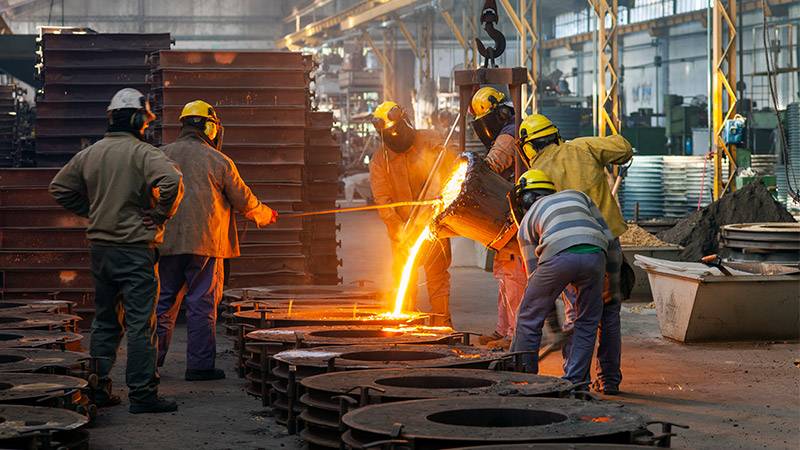A former steel mill in Weirton, West Virginia, that once symbolized the heart of the American steel industry, is about to be repurposed for a green future. Form Energy, an energy storage company based in Massachusetts, is establishing its primary iron-air battery manufacturing facility on this site. This marks a monumental shift, illustrating the potential for old industrial towns to transition to green energy solutions.
The initiative to construct this plant has been hailed as a result of the incentives laid out in 2022’s Inflation Reduction Act (IRA), championed by President Biden. It stands as proof to many advocates that climate policies can revive deindustrialized communities, although the long-term impact remains contingent on multiple variables.
Form Energy’s venture isn’t just innovative but also a beacon of hope. Helmed by an ex-Tesla vice-president, the company commenced its construction phase in May. Their ambition? To develop batteries that utilize iron, water, and air, capable of storing electricity for a duration of 100 hours, offering a sustainable alternative to lithium-based batteries. This endeavor, estimated at $760 million, is expected to create 750 stable, well-paying jobs.
The story of Weirton resonates with many old industrial towns. In its prime during the 1940s, the Weirton steel mill was a colossal entity, employing over 13,000 people, making it the state’s top taxpayer. But as time unfolded, the local industry’s dominance waned, mostly due to foreign competition and regulatory changes. The economic decline culminated in the company filing for bankruptcy in 2003, leading to a significant community downturn.
However, the recent shift towards renewable energy and the incentives from the IRA might be the catalyst the area needs. Since the IRA’s implementation, 83 clean energy manufacturing hubs, including 14 battery plants, have been announced, as reported by the American Clean Power Association. The act’s encouragement for green energy entities to offer prevailing wages and engage workers in registered apprenticeship programs has particularly been well-received. Meeting these prerequisites enables companies to avail a 30% tax credit on eligible projects, whereas non-compliance slashes the rebate to a mere 6%.
Workers will produce batteries capable of storing electricity for 100 hours, which will run on iron, water and air instead of the more common but less-abundant metal lithium. The $760m project will create 750 well-paying permanent jobs, the company said.
The groundbreaking ceremony for Form Energy’s plant had an additional element of promise. The company has made a commitment to employ a portion of unionized workers. However, while unionization holds potential advantages, the IRA doesn’t mandate it. Hence, the rejuvenation of the labor movement in West Virginia, especially within the green sector, is seen as crucial by experts for maximizing the benefits of the transition.
Notwithstanding the promise, challenges abound. According to The Guardian, the unionization rate in green industries lags behind that in the fossil fuel sectors. Anti-union policies, especially in Republican-dominated states like West Virginia, further exacerbate this divide.
Yet, the optimism isn’t entirely misplaced. The Form Energy project’s scale, while not matching the Weirton Steel’s zenith, can be the spark for other investments. Patrick Ford from the Frontier Group perceives this initiative as the pioneering effort required to stimulate further developments.
However, for sustained progress, strategic decisions are imperative. As history indicates, West Virginia needs to ensure equitable resource distribution, avoid foregoing revenues, and shun any repetition of past errors. While uncertainties loom, many locals, including Mark Glyptis of the United Steelworkers, are hopeful. As the area is endowed with infrastructural benefits and a skilled workforce, there’s a shared optimism for Weirton’s renaissance.
More inspiring green news similar to this:


